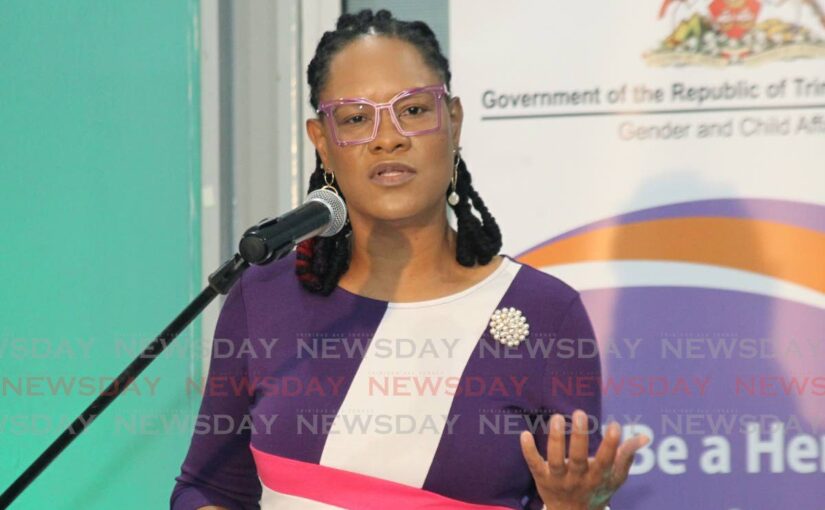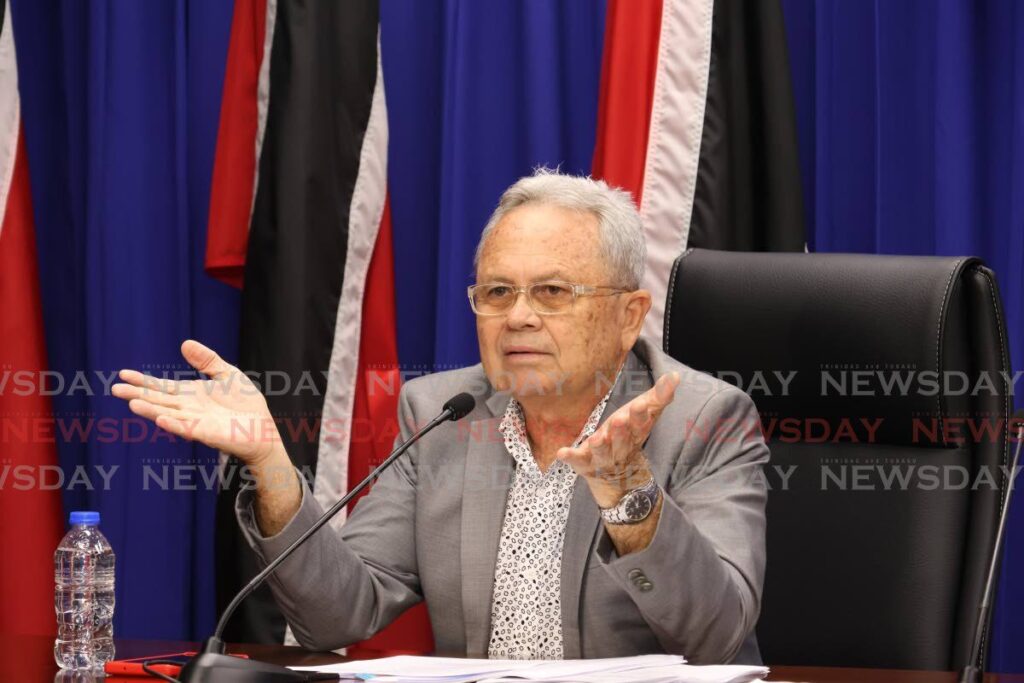Webster-Roy: Stigma hampering fight against HIV/Aids
Written by Rishard Khan on December 11, 2024

The country and world’s commitment to end the HIV/Aids epidemic by 2030 is being compromised by the persisting stigma and discrimination against those living with the condition.
Minister of Gender and Child Affairs in the Office of the Prime Minister Ayanna Webster-Roy made this comment at a virtual town hall meeting hosted by the National Aids Coordinating Committee (NACC) on December 10.
Webster-Roy said, “Ending Aids as a public health threat by 2030 requires complementary support.” This included drugs to protect people from infections and anti-retroviral drugs for people living with HIV, as well aspsychological support for them and their families.”
In addition, she said, there must be a tolerant society that allows people living with HIV and key populations “to remain accepted, functioning, cherished members of society.”
She said despite medical advances in preventing and treating the condition, stigma and discrimination have been affecting the ways people access these services.
“It continues to create major barriers to addressing the epidemic in Trinidad and Tobago.”
HIV-related stigma and discrimination is manifested in various ways, she said, including rejection by family and communities, denying access to health services, loss of employment and housing and other human-rights violations.
“These attitudes and behaviours discourage people from getting tested, disclosing their status and accessing the care and support they need.”
She said more public education on the condition was needed to create awareness about the harms that stigma and discrimination do to the fight against HIV, and hence she commended the NACC for hosting the meeting.
NACC member Kimberly Gilbert said people need to educate themselves and others on HIV prevention, treatment and transmission to help reduce stigma and discrimination. She encouraged people to take action.
“Challenge stereotypes. If there is someone at your workplace that is spreading a rumour or making things challenging for somebody living with HIV, challenge them. Ask them, ‘What’s the harm?’
“Support people living with HIV to ensure a stigma-free environment…We all have a part to play to end Aids as a public health threat by 2030.”
Also speaking during the meeting was a girl named Kimberly, who recalled the discrimination her mother experienced, even from relatives, after her HIV diagnosis, when she became paralysed after a stroke.
“Seeing a parent go through that wasn’t something easy, especially growing up.”
She said relatives had been were helping take care of them.
“When it did come out that she was HIV-positive, the treatment she got from her own family members – people who would have seen her grow up from a little child to what she was now – it completely flipped. The treatment was different, and I remember that the same day they found out that she was HIV-positive, she came back up home to live in the house with me and my siblings, because she was not there due to her not being well, and the responsibility of her care and treatment fell on me and my siblings. I remember…me and my other sister having to leave school to go home to give my mother medication at the time. When that happened I was only in Standard Five.”
Kimberly said her mother was also stigmatised in the community after relatives disclosed her HIV status, without her permission, to neighbours.
“It was very hard having to see her go through everything that she went through.”
Worse, she said, her mother was also a victim of gender-based violence and intimate-partner violence.
“People are always quick to assume how someone contracted HIV or always like to think of it in a negative way.”They don’t consider how someone can contract HIV and how it affects their family, especially if they have children, she said.
“I think it’s always best for people to always think when they hear about someone, especially a family member, being HIV-positive to show empathy and sympathy for them, because you never know what the situation could have been or what led to this diagnosis. Don’t judge, because it could easily happen to anybody else.”
The post Webster-Roy: Stigma hampering fight against HIV/Aids appeared first on Trinidad and Tobago Newsday.




